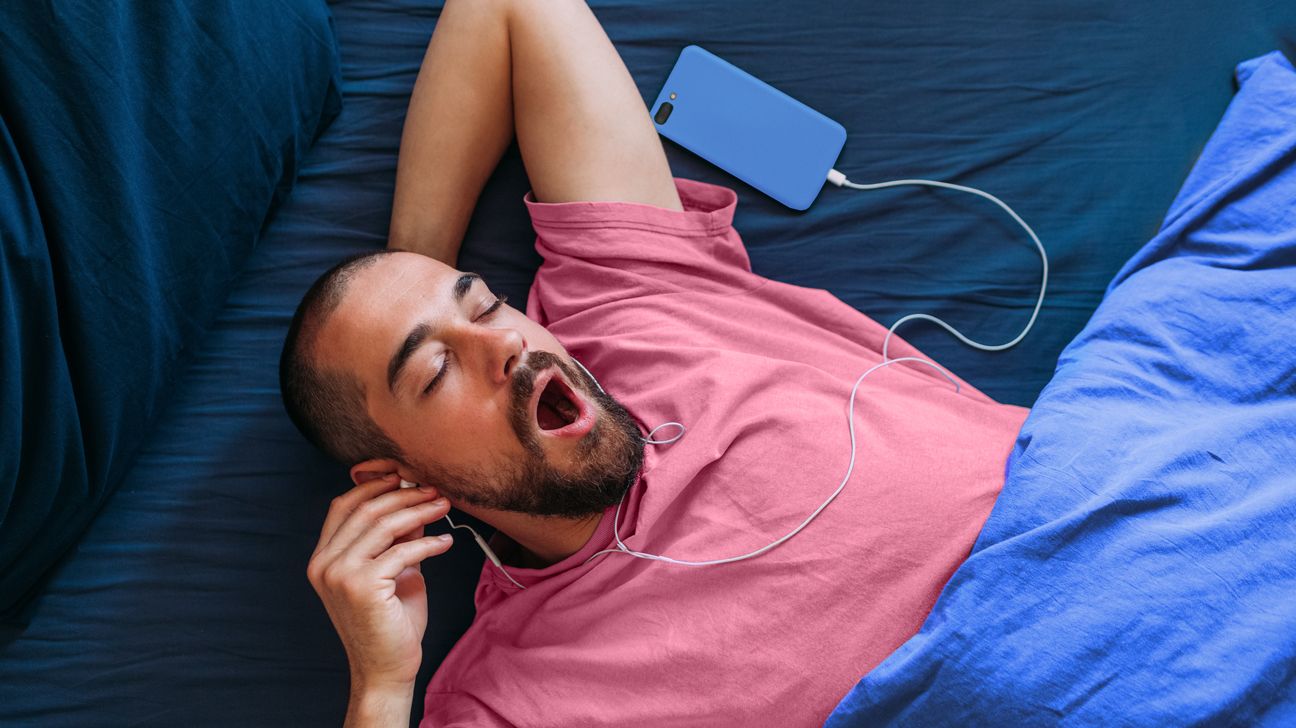We include products we think are useful for our readers. If you buy through links on this page, we may earn a small commission. Here’s our process.
Greatist only shows you brands and products that we stand behind.
Our team thoroughly researches and evaluates the recommendations we make on our site. To establish that the product manufacturers addressed safety and efficacy standards, we:- Evaluate ingredients and composition: Do they have the potential to cause harm?
- Fact-check all health claims: Do they align with the current body of scientific evidence?
- Assess the brand: Does it operate with integrity and adhere to industry best practices?
1… 2… 3… wait, why are all these sheep in your room? And why is counting them not working?
People of all ages catch Ls while trying to catch Zzz’s. According to the National Heart, Lung, and Blood Institute, 50 to 70 million people in the United States experience sleep disorders such as insomnia.
But don’t sleep on sleep. It’s absolutely central to a healthy, happy lifestyle. Snoozing gives your body some R&R, keeps your brain sharp and responsive, and supports your ability to make new memories.
There’s no one magical formula for catching those Zzz’s, but research suggests certain sounds may help you drift off to dreamland. From white noise to the sounds of the Amazon, find out which noises may help you sleep better (and which ones will only leave you with bags under your eyes).
According to a 2011 study on marmosets, the primate brain (yep, that includes us) tunes out certain sounds during sleep, but the parts of the brain that process sound continue to do so.
People are much less sensitive to their environment when they’re snoozing than during waking hours.
The sounds we notice while sleeping or falling asleep can either be alarming or relaxing, says Orfeu Buxton, a neuroscientist at the Division of Sleep Medicine at Harvard Medical School.
Alarming sounds can disrupt the process of falling asleep. Relaxing sounds, or “pink” sounds, on the other hand, can help us fall asleep more quickly and sleep more deeply.
But it’s not always easy to know whether those low volume “Friends” reruns will be soothing or disruptive. (Could you be any more sleepy?)
Personal taste dictates whether you find a sound relaxing or disruptive. Sometimes, we find sounds pleasant because of positive emotional associations. So the sound of man’s best friend barking can be relaxing for someone who is fond of doggos.
But there is, naturally, a whole world of sound out there. It can take some time to figure out which ones work for you.
Neuroscientist Hawley Montgomery-Downs of West Virginia University recommends trying specific sounds for at least a few nights to find out if they’re really helping you get a better night’s rest.
Try some of the sounds below for a solid chunk of snooze time.
Make some (white) noise
Hisssssssss.
White noise combines all noise frequencies and can mask other sounds. The results of a 2016 study on people struggling to sleep in a critical care unit suggested that white noise may be effective for self-managing insomnia.
But, Montgomery-Downs warns, be wary of white noise apps, which can cause auditory nerve damage, especially for folks who use headphones or have sensitive hearing.
Instead, she recommends using a white noise machine, which sounds similar to a fan, or a website like SimplyNoise.com.
Embrace nature
Ocean waves, rainforest animals, thunderstorms, and even the Chinese giant salamander can all be pleasant sounds to fall asleep to.
Buxton suggests that natural noises are less likely to annoy us than some other sounds, because their volume and tone usually vary quite a lot.
But he warns that folks using rain or ocean sounds should make sure there’s a toilet nearby, since the sound of water can trigger the need to use the bathroom. (The need to pee could also be one of the things waking you up at night.)
Play that (not quite so) funky music
When a head full of worries is keeping you awake, music might help you relax a little. But the best type of music for this is anyone’s guess — it’s very much a matter of preference. (Take this baby’s preference for heavy metal as a sleep aid, according to the 2007 movie “Shoot ’Em Up,” a not-exactly-scientific source.)
Avoid music with lyrics that may keep your mind active. Instead, try classical, folk, ambient, or slow-paced contemporary styles.
If you’re using the radio or TV for music, use a timer. The noise may disrupt your sleep later into the night, whether you realize it or not.
Get personal
Sometimes there’s nothing quite as relaxing as another human voice.
Try some of the fancy new apps out there, like pzizz, which lulls listeners to sleep with a soothing voice. Or you could record a close friend reciting the instructions in a muscle relaxation demo that can guide you into sleep.
While science says sleeping with sounds has some benefits, what works and what doesn’t is ultimately between you and your brain.
So experiment. Listen to podcasts, white noise, or ambient music in the wee hours and find out firsthand what sends you to the land of nod.
Not up for sleeping with speakers on? How about sleeping with socks on?



